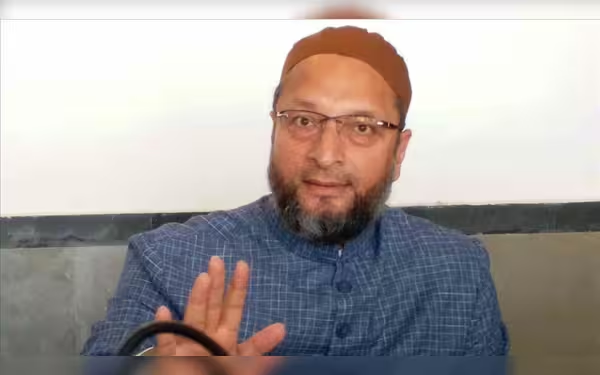Saturday, December 21, 2024 05:21 PM
Court Orders Survey of Sambhal Mosque Amid Controversy
- Court ordered survey of Shahi Jama Masjid in Sambhal.
- Owaisi questions motives behind the court's decision.
- Violence erupted during the mosque survey, resulting in casualties.
 Image Credits: menafn
Image Credits: menafnThe court's survey order of Sambhal Mosque raises questions amid rising tensions and violence, as Owaisi critiques the decision.
The recent court order for a survey of the Shahi Jama Masjid in Sambhal has sparked significant controversy and debate across India. This mosque, believed to have been constructed by Mughal emperor Babur in 1526, has become a focal point of tension between different religious communities. The court's decision came after a plea from the Hindu side, which claimed that the mosque was built after demolishing a temple. This situation escalated on November 24, when violence erupted during the survey, resulting in the tragic loss of four lives and numerous injuries.
In response to these developments, prominent political figure Asaduddin Owaisi has raised critical questions regarding the court's actions. He pointed out that the original plea was for the "right to access" the mosque, leading him to question, "If this is so, why did the court order the survey, which is wrong?" Owaisi emphasized that if individuals seek access to the mosque, there should be no barriers preventing them from doing so. He further highlighted the contradiction in the court's decision, especially in light of the Places of Worship Act, which aims to preserve the character of religious sites as they were on August 15, 1947.
Owaisi's concerns extend beyond the Sambhal mosque to other religious sites, such as the Ajmer Sharif Dargah in Rajasthan, which has also faced similar claims. He noted that the dargah has existed for over 800 years and has historical significance, as mentioned by the Sufi poet Amir Khusro. He questioned the motives behind these claims, asking, "If this is so, where is this going to stop?" This sentiment reflects a growing anxiety among various communities regarding the potential for further disputes over religious sites.
Moreover, Owaisi criticized the ruling Bharatiya Janata Party (BJP) for diverting attention from pressing national issues such as inflation, unemployment, and farmer suicides. He argued that the government should focus on these critical challenges rather than engaging in disputes over religious places. He stated, "Such issues weaken the country," urging leaders to prioritize the welfare of the people over religious controversies.
In a related context, RSS chief Mohan Bhagwat recently expressed concerns about India's declining population growth, suggesting that the Total Fertility Rate (TFR) should be higher than the current rate of 2.1. Owaisi responded to this by suggesting that those in the RSS should lead by example, emphasizing the need for consistency in policies regarding family size and government benefits.
The ongoing situation surrounding the Shahi Jama Masjid and similar religious sites raises important questions about the intersection of faith, history, and law in India. As communities grapple with these issues, it is crucial to foster dialogue and understanding to prevent further violence and division. The preservation of religious sites and the respect for diverse beliefs should be prioritized to ensure harmony in a nation as diverse as India.













